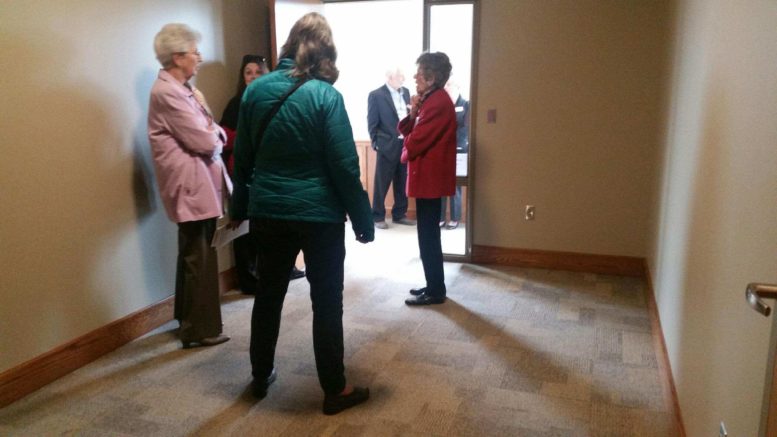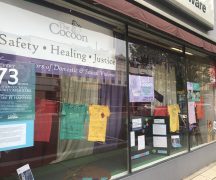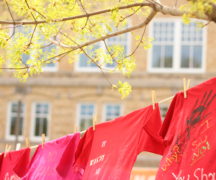By JAN LARSON McLAUGHLIN
BG Independent News
For years, Verizon has provided a lifeline to survivors of domestic violence. But the company will soon be discontinuing its phone donation recycling program called HopeLine.
Locally, the program has helped domestic violence survivors served by The Cocoon. In the last two years, the local shelter has received between 100 and 150 phones with pre-paid minutes and text messaging, said Kathy Mull, executive director of The Cocoon.
“It’s really been a benefit to us in supporting survivors who we serve,” Mull said on Friday. “It really does provide a valuable service.”
The cell phones play a vital role in several survivors’ safety plans. Phones can help victims of abuse feel safer and less isolated by giving them a way to call emergency or support services, employers, family and friends.
But on Dec. 31, that HopeLine program will be ended by Verizon.
The change is being attributed to several factors, including a decrease in phone donations as more customers opt to trade in older cell phones for newer models, and also by the declining availability of feature phones, which had been provided to domestic violence survivors by the HopeLine program.
So The Cocoon is looking for other phone options. Mull explained that the agency works with survivors to get their own sustainable resources. But in the meantime, The Cocoon will be turning to the community for help.
“We are really exploring all of our options,” Mull said.
The Wood County community has been very supportive of the domestic violence agency, and Mull is hoping that response continues for this need.
“We will be asking the community to donate to help folks who don’t have other options – to provide them with that safety net,” Mull said.
Anyone interested in donating old cell phones with pre-paid minutes may call The Cocoon office at 419-373-1730 to arrange a drop-off. Phones may also be dropped off at St. Mark’s Lutheran Church on South College Street in Bowling Green.
“The community has been really gracious to us,” Mull said.
Though the end of Verizon’s HopeLine program is unfortunate, Mull said she is thankful for all the company has done for survivors of domestic violence.
“We are extremely grateful for Verizon,” she said.
It is estimated that in the U.S., one in every four women and one in every seven men have experienced severe physical violence from an intimate partner, and each year more than 15 million children witness violence in their homes.
Verizon Wireless’ commitment to preventing domestic violence began in 1995 when the company, then Bell Atlantic Mobile, introduced its HopeLine program. At its beginning, the HopeLine program donated voicemail boxes to victims of domestic violence living in shelters. The program also donated emergency wireless phones for victims’ use.
In 2001, national recycling and re-use became key elements of the HopeLine program, as Verizon encouraged customers and the public nationwide to donate no longer used cell phones.
In 2002, Verizon launched #HOPE nationwide. By dialing #HOPE on any Verizon wireless phone, victims of domestic violence are able to access the National Domestic Violence Hotline at no cost.
Wireless phones given to HopeLine are refurbished and sold for reuse, generating proceeds for the program. Refurbished phones – complete with 3,000 minutes of wireless service – are provided to local domestic violence organizations or local government and law enforcement agencies for use with their domestic violence clients.
Though the HopeLine program is ending, Verizon will continue to support domestic violence survivor programs in other ways, according to the company.
Verizon will continue its support of Camp Hope, a national youth program focused on ending the cycle of generational violence; will still support the #Hope feature, which allows any Verizon Wireless customer to connect to the National Domestic Violence Hotline simply by dialing #Hope on their mobile phone; and will provide grants to leading nonprofit organizations, focusing on organizations that support victims and survivors of domestic violence and those that strive to prevent it.





